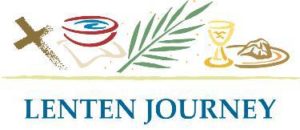Scripture Readings 16th April 2017, Easter Sunday, Year A
Acts 10:34,37-43 Psalm 117 Romans 6:3-11/Colossians 3:1-4/1 Corinthians 5:6-8 Matthew 28:1-10/John 20:1-9
Continuing his gospel about Jesus’ ministry before he died, Luke’s Book of Acts describes Jesus’ activity on earth through his Holy Spirit. In a vision Peter was told that all animals and birds are suitable for eating, indicating that the restrictions of the Jewish Law were coming to an end. He is then able to enter the house of Cornelius, a Gentile. Peter’s speech about what God has done in Jesus, is interrupted by the Holy Spirit welcoming the Gentile community into the church. Peter then realises that forgiveness of sins is offered to “everyone who believes” in Jesus’ name.
The short reading from Paul’s letter to the Colossians also draws attention away from earthly marks of religion: they should focus on the life to come when they “will appear with Christ in glory”. The alternative reading is an early Easter homily. In the Jewish calendar Passover was followed by the feast of Unleavened Bread.
In the three synoptic gospels three women discover the tomb empty and run to tell the apostles. But in John’s gospel Mary of Magdala is alone. She finds the stone removed from the tomb. Without going inside she runs to tell Peter. Peter goes in first and sees the empty burial cloths. When the other disciple goes in, he believes.
Psalm Response – Vigil: Give thanks to the Lord for he is good, for his love has no end.
Psalm Response – Sunday: This day was made by the Lord: we rejoice and are glad.
Acts 10:34,37-43 Psalm 117 Romans 6:3-11/Colossians 3:1-4/1 Corinthians 5:6-8 Matthew 28:1-10/John 20:1-9
